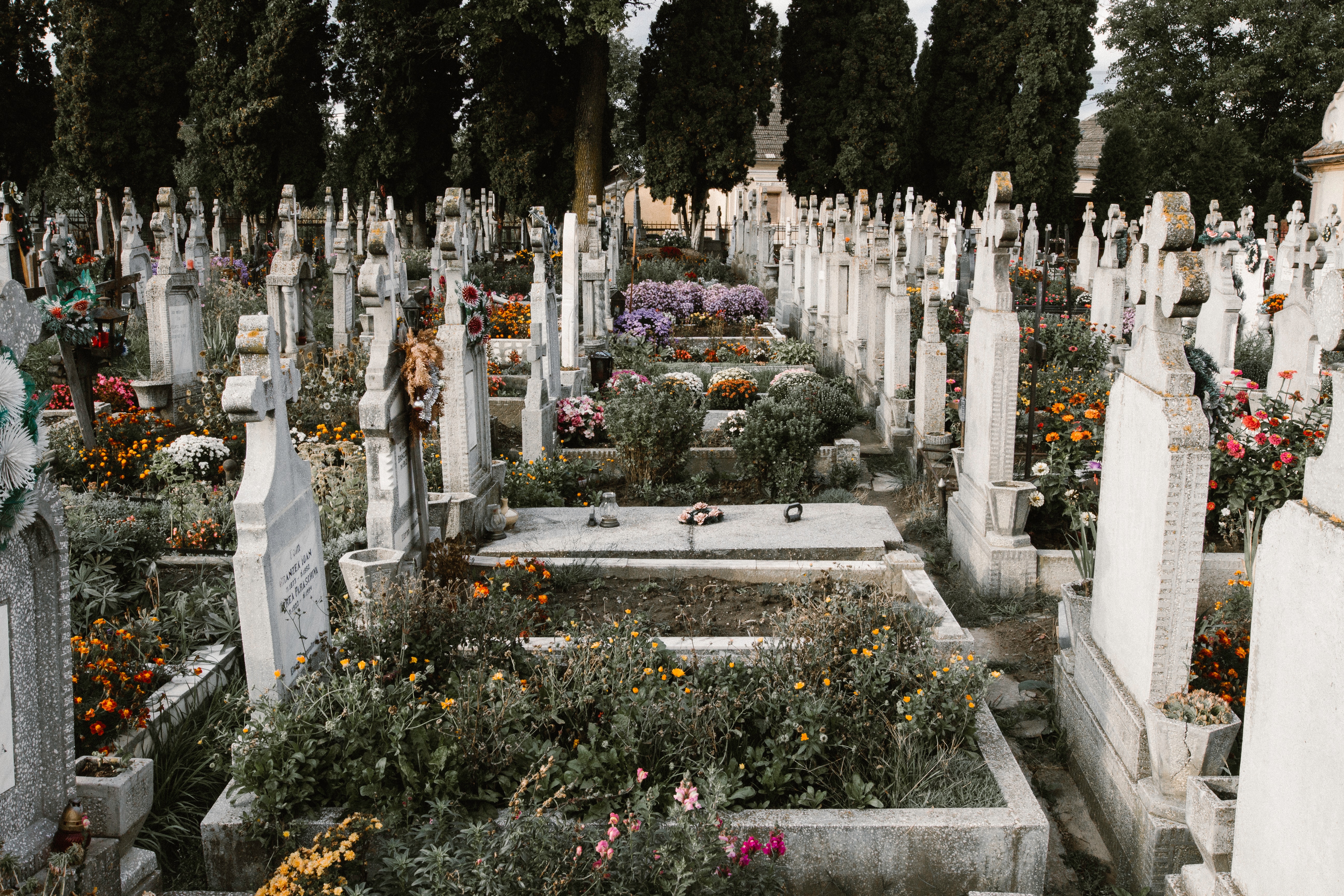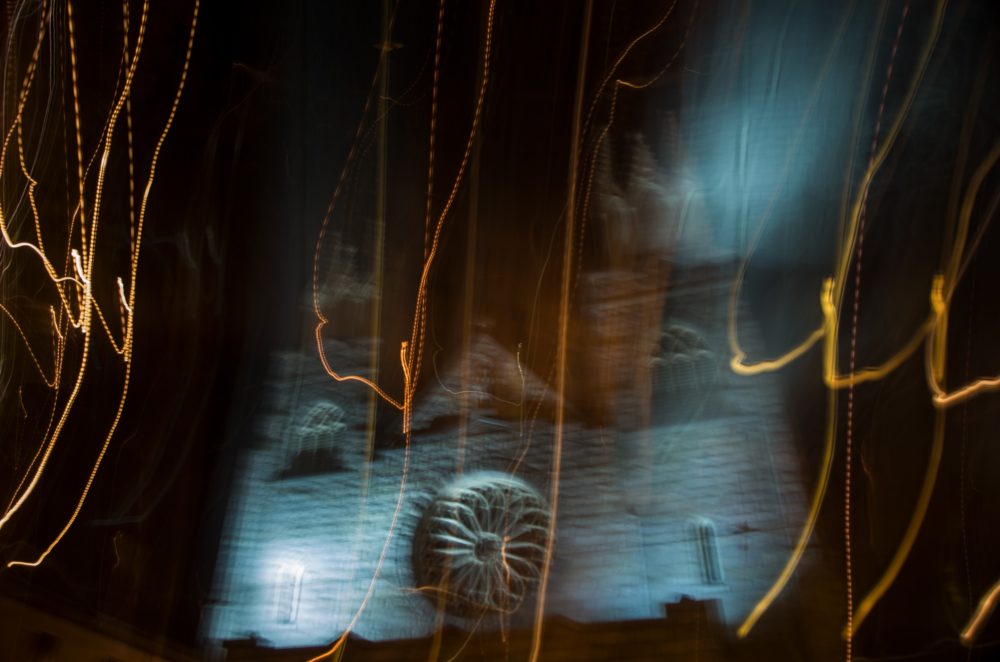Happy Halloween to spurned creatives everywhere. For the third year, Submittable asked for spine-tingling tales of literary misfortune—and the coffers (coffins?) filled to bubbling over like a witches brew. You sent us true stories, fiction, poetry.
In fact, we received such a frightening bounty of well-rendered, sad, and spooky material from you that we’ll be sharing favorites both today and tomorrow. Please enjoy Part 1 below and have a terribly delightful holiday.
Rejection Letter

Dear Allison Crowley,
Thank you for the opportunity to read Chapbook of Spells & Curses. Unfortunately, it’s not right for us at this time.
Our first-round readers loved it. Samir’s terminal colon cancer, for lack of a better word, disappeared; his oncologist called it a miracle. Jocelyn became pregnant after doctors told her she’d never have children.
However, our second-round readers experienced different results. Mia was diagnosed with rinderpest, which was thought to be eradicated and to infect only livestock. Then Jeremy, well, spontaneously combusted.
We wish you success in finding a home for your manuscript.
Sincerely,
Tempest Press Editors
Poetry Never Dies

I am a literary translator from Uruguay, South America. I’m committed to disseminating the Spanish-language work of undervalued Uruguayan authors who have fallen under the radar and who for the most part have never been translated into a foreign language before. Over the years, my translations have appeared in many poetry journals and anthologies.
In the year 2010, I sent a group of translations to a well-known American literary journal. I had translated work by poets Líber Falco, Humberto Megget, and Pedro Piccatto. All three had been dead for over half a century, and my cover letter specified that they were deceased.
The rejection slip which I (or, rather, the creative dead) received read as follows:
Dear Líber Falco, Humberto Megget and Pedro Piccatto:
Thank you for sending ‘Poetry from Uruguay (in translation)’. Your work received careful consideration here.
We’ve decided this manuscript isn’t right for us, but we wish you luck placing it elsewhere.
Kind regards,
The Editors
P.S. Without submissions like yours, we’d lose the sense of discovery that keeps XXX fresh. Please click here for a discounted subscription rate offered as a thank-you to our submitters.
So much for their “careful consideration” (which, upon my sending a mildly sarcastic note, the editor attributed to “the absurdities of our digital age”). And don’t even get me started on the tastelessness of trying to sell you a subscription after they have rejected your work—this is something many journals do, and somebody should tell editors it’s completely off-putting and a no-go.
Thanks, San Francisco State

In 1999, I moved to Berlin. I’d just graduated from Mills College with a degree in music, but I’d always loved to write. I decided I wanted to finally get serious about writing and Berlin was the place to do it. So I bought a stack of books on craft at used bookstores in Berkeley, packed my bags, and hopped on a plane. Once I got to Berlin, I wrote in cafes during the day, ordering in my broken German, and babysat in the afternoon. I read a lot and went through the books on craft, diligently doing the exercises at the end of each chapter all on my own.
But after I did this for a year, I started to feel like I was just spinning my wheels. Maybe this whole run-away-to-Europe-to-become-a-writer idea was outdated. If I really wanted to become a writer, didn’t I need to get an MFA in creative writing? I decided the answer was yes.
I wasn’t cocky or sure enough of my work to take a crack at one of the big shot schools, like Iowa or Columbia. But I figured I had a good chance to get into the University of Arizona or San Francisco State, and both schools were located in places I wanted to live anyway, so that was the plan.
Applying for an MFA program from abroad in the early aughts was no easy feat. DVDs were still mostly for early adopters—I was sure they would never really take off. Cell phones were not yet the norm and flip phones were state of the art. Luckily, email was already around, so I was able to look up a few old professors to ask for letters of recommendation. The rest of the process involved my mom sending away for applications and physically going to various schools to get my transcripts which she then sent to me through registered mail. I still managed to get everything together and off on time to meet the deadlines. Now all I had to do was wait.
The rejection from the University of Arizona came first. It was your standard spiel: Thank you for your application, but unfortunately, we must inform you that you have not been accepted to the program, blah, blah, blah. Although I was a little disappointed, I wasn’t all that upset because my heart was more firmly set on San Francisco State for two very good reasons.
The first reason was that I had fallen in love with a guy who lived in San Francisco a few months before I left for Berlin. Although my love life was complicated at the time (I’ll spare you the details), when I went back, part of me hoped we’d pick up where we’d left off. The second reason why I wanted to go to San Francisco State was because it wouldn’t cost me a dime. Since I’d only worked four months in California before I left and the work I’d done in Berlin was all off the books, when I applied for financial aid I was awarded a massive Pell Grant. Not only would the grant pay my tuition for the entire program, it would also be enough to cover my housing costs.
Anyway, since this is a piece for rejection horror stories, it should be clear by now that I didn’t get in. But that’s not the full extent of the horror. When I got the rejection letter, the first part was the same standard text I’d gotten from the University of Arizona. The second part, however, was the most heartless rejection I’ve ever received:
We just wanted to take a moment here to let you know we select our students based exclusively on their writing sample. Not their letter of recommendation, not the grades on their transcripts, but on the quality of their writing alone.
Not only did I miss out on a free MFA thanks to the grant and a shot at rekindled romance, the staff at the MFA program had gone out of their way to make it extra clear that the reason I didn’t get in was because they thought my writing wasn’t good enough.
Since I’m a writer, I’ve been rejected many, many times since then. Sometimes the rejection is gentle and encouraging, mostly it’s impersonal, occasionally it’s brusque and rather cold. But I’ve never received any rejection that was as upsetting and purposely mean-spirited as that letter from San Francisco State all those years ago when I was just starting out.
Slush Pile

It’s called a slush pile
because your carefully crafted sheaf of paper—
nurtured, tended, sweated over,
ripened, harvested with care—
lays there until the paper blisters black,
and deliquesces
into an unholy slush.
Accepted, Rejected, Compensated

A teaching colleague floated a hot tip. There was an online publication with a (slightly) religious bent that was accepting short memoirs. And they paid! He said he’d already had a couple essays accepted for publication, and the turnaround time was fast, so I immediately looked them up. The submission guidelines were more or less in my wheelhouse, 400-800 word “upbeat, personal essays,” but they couldn’t don’t “deal with topics of death, aging, and disease,” and “the humor should be gentle.” I’ll admit, I was exploring my edgelord phase, at the time, but I found what I thought would be a suitable fit for submission, and the f-bombs were easily edited out. Signed, sealed, submitted (via email).
Barely a few days passed before I received the grand news. My submission was accepted, I would be paid $100, and the contract was in the mail.
The money had already been spent by the time I received a follow-up pre-publication email from the editor. There was a problem. The editor had failed to notice a Garbage Pail Kids reference in my essay, but a more pop culture savvy reader on the editorial team had recognized my nod to the beloved 1980s parody stickers, which they recalled often poked fun at “death, aging, and disease,” and hence my humor was deemed less than “gentle,” and my essay would be pulled from publication!
Alas, since I had already signed a contract, I was notified I would at least be partially compensated for the inconvenience of having my memoir accepted, then pulled from publication. I eventually received a check for $50, still one of my highest single writing payments to date, and my essay lived to be rejected again, and again, and again, by multiple editors who refused to pay for the pleasure of doing so.
Want more? Revisit the haunting woes of years past here and here, and stay tuned for more ghastly recollections tomorrow.
